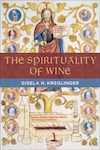 It is the first morning of vacation in a friend’s condo. I am looking down on the condo’s private beach from my balcony. From way up here, everyone is small, no one too fat, too sexy, too weak, too old, or too young. They are all just specks of human beings swallowed by a vast dance of blurry sandbars beneath an undulating surf. I arrived last night in the dark and went to sleep. This morning, I try to unkink from regular life stresses. I keep telling myself it’s okay if my thoughts walk away from these relentless concerns. The ocean, meanwhile, forgets with ease, content with humming a tune of waves that massage the air like an oscillating fan, a white noise sound machine rising and falling, over and over, an unending breath-like soundtrack.
It is the first morning of vacation in a friend’s condo. I am looking down on the condo’s private beach from my balcony. From way up here, everyone is small, no one too fat, too sexy, too weak, too old, or too young. They are all just specks of human beings swallowed by a vast dance of blurry sandbars beneath an undulating surf. I arrived last night in the dark and went to sleep. This morning, I try to unkink from regular life stresses. I keep telling myself it’s okay if my thoughts walk away from these relentless concerns. The ocean, meanwhile, forgets with ease, content with humming a tune of waves that massage the air like an oscillating fan, a white noise sound machine rising and falling, over and over, an unending breath-like soundtrack.
 A labyrinth is not like a maze, whose purpose is to thwart the walker’s cunning, lose her in a splatter of dead ends, spin him back to the beginning before earning a finish. A labyrinth is a disappointment for a person hoping for such a puzzle. No challenge, no tense thrill. Just one foot in front of the other like any other day. One path takes you to the labyrinth’s center and the same path takes you back out again, exiting exactly where you entered. No matter the paths we walk left to our own devices, for the next six hours there would be no doubt about the way our footsteps were to be set.
A labyrinth is not like a maze, whose purpose is to thwart the walker’s cunning, lose her in a splatter of dead ends, spin him back to the beginning before earning a finish. A labyrinth is a disappointment for a person hoping for such a puzzle. No challenge, no tense thrill. Just one foot in front of the other like any other day. One path takes you to the labyrinth’s center and the same path takes you back out again, exiting exactly where you entered. No matter the paths we walk left to our own devices, for the next six hours there would be no doubt about the way our footsteps were to be set.
Back to the Garden
Perhaps like these women and the little girl, and maybe like others who feed people as part of a parenting vocation or faith community, I see the garden through the lens of my own faith and call to mothering and being mothered, the garden as a connection to nourishment and solace.
And to redemption. A safe haven where I might receive life and pass it on, or get it back from the edge of death.
 Hospitality is serving people and helping people who are in our home. We listen. If they stay in our home, I fix meals and prepare a bed and so forth for them. I read something about—I think it is Benedict's Rule of Hospitality—that there's a difference between serving and being a servant. When I'm serving, I'm in charge. If I'm a servant, you're part of it. If you want to do something to help me, I'll let you do it because that's allowing you in. You're not being in charge. I'm not being in charge.
Hospitality is serving people and helping people who are in our home. We listen. If they stay in our home, I fix meals and prepare a bed and so forth for them. I read something about—I think it is Benedict's Rule of Hospitality—that there's a difference between serving and being a servant. When I'm serving, I'm in charge. If I'm a servant, you're part of it. If you want to do something to help me, I'll let you do it because that's allowing you in. You're not being in charge. I'm not being in charge.
 Someday, I’ll sit under a tent next to my mother’s casket, which will be adorned with yellow roses. Tears and laughter will mingle as I think of that chicken brooding over her, a symbol left behind for her loved ones of her humor and care. I will remember how I was shepherded in childhood, surrounded with death in life and life in death. And I’ll go on.
Someday, I’ll sit under a tent next to my mother’s casket, which will be adorned with yellow roses. Tears and laughter will mingle as I think of that chicken brooding over her, a symbol left behind for her loved ones of her humor and care. I will remember how I was shepherded in childhood, surrounded with death in life and life in death. And I’ll go on.
Objection Sustained
If the need for approval is analogous to the need for a drug, I’m never going to be cured. And I don’t think that’s admitting defeat. It’s giving up the charade that we’re rational animals capable of self-sufficiency, which is neither true of our bodily needs—cities, police, and Wi-Fi are things I want to keep—or of our emotional needs—to be listened to, to be agreed with, and to be congratulated, every so often.
After the state championship, the real world came crashing in and told me that I wasn’t perfect.
 I hadn’t realized that a love of art and beauty could be a liability. I was good at art and beauty.
I hadn’t realized that a love of art and beauty could be a liability. I was good at art and beauty.
Was it that day I skipped in high school when my European History class covered Versailles? Was it my childhood? My culture? Am I just a rebel?
For too long, I have loved myself with shopping beyond my means, and the wake of spending leaves me ripped off. Months later, I will learn the phrase God-shaped hole.
 To be human is to be hungry, to crave milk and honey, to be brought to a banqueting table bannered with love. I’m pulling my chair up to that table, that midnight feast, that last supper, that hospital dumpling delivery, that promise of milk and honey and the ability to enjoy it.
To be human is to be hungry, to crave milk and honey, to be brought to a banqueting table bannered with love. I’m pulling my chair up to that table, that midnight feast, that last supper, that hospital dumpling delivery, that promise of milk and honey and the ability to enjoy it.
 Could it be that God wanted to redeem not only my life but also all the hustle and bustle that life on the winery brings? We work so hard to make a living from growing vines and crafting wine. Could it be that God cared about it and perhaps was even involved in it? This idea is not quite what I had learned in my confirmation classes over the last two years. But was it not true? Had Jesus not made wine as well?
Could it be that God wanted to redeem not only my life but also all the hustle and bustle that life on the winery brings? We work so hard to make a living from growing vines and crafting wine. Could it be that God cared about it and perhaps was even involved in it? This idea is not quite what I had learned in my confirmation classes over the last two years. But was it not true? Had Jesus not made wine as well?
 When I imagine a rich and balanced life, I picture a home much like Sagamore Hill, bustling with active bodies and active minds, where faithful character above all drives the life of the family. One of Roosevelt’s most common phrases for his experiences was great fun. When mind, body, and spirit are working and growing together, life can indeed be great fun, whether on icy river waters or in the comfort of home.
When I imagine a rich and balanced life, I picture a home much like Sagamore Hill, bustling with active bodies and active minds, where faithful character above all drives the life of the family. One of Roosevelt’s most common phrases for his experiences was great fun. When mind, body, and spirit are working and growing together, life can indeed be great fun, whether on icy river waters or in the comfort of home.
 I listen for what I can affirm. I presume that people have treasured enthusiasms that are worthy of affirmation in some small way, and I try to find out what is it about the football game or even the legislation that seems to address a hope or a fear in that person. I start there and see where we can go. I do that in the classroom all the time, when I say something that leads a student to conclude that I’m not on their side. I try to provoke. I think everything I say I really believe, but I do try and direct it in such a way that it invites a sometimes passionate response, or at least that makes the person feel they must respond in order to be true to who they are. And once they do that, that’s not the end of the conversation. That’s the beginning of more questions.
I listen for what I can affirm. I presume that people have treasured enthusiasms that are worthy of affirmation in some small way, and I try to find out what is it about the football game or even the legislation that seems to address a hope or a fear in that person. I start there and see where we can go. I do that in the classroom all the time, when I say something that leads a student to conclude that I’m not on their side. I try to provoke. I think everything I say I really believe, but I do try and direct it in such a way that it invites a sometimes passionate response, or at least that makes the person feel they must respond in order to be true to who they are. And once they do that, that’s not the end of the conversation. That’s the beginning of more questions.
 I pray that when the stakes are higher than a baby swing, she will be surrounded by friends who are eager to help. Friends who will sit with her through the mundane, who will help pull her out of her darkest struggle, and who will chase the beauty in the world and make sure she doesn’t miss it.
I pray that when the stakes are higher than a baby swing, she will be surrounded by friends who are eager to help. Friends who will sit with her through the mundane, who will help pull her out of her darkest struggle, and who will chase the beauty in the world and make sure she doesn’t miss it.
 I want to live a contemplative life and, as an extension of that, to be a contemplative writer. I already tend toward that kind of life. I love thinking and getting into the deep space in my mind to explore and make connections. But getting into that space in a meaningful way can be difficult because it requires time and space. If there are no empty spaces for contemplation, there is no contemplation.
I want to live a contemplative life and, as an extension of that, to be a contemplative writer. I already tend toward that kind of life. I love thinking and getting into the deep space in my mind to explore and make connections. But getting into that space in a meaningful way can be difficult because it requires time and space. If there are no empty spaces for contemplation, there is no contemplation.
 I find it heartening that in the face of incomprehensible loss, when life was stripped down to its most meager essentials, many entrusted their painful sojourn to an aesthetic creation. I can’t help but think that something within them believed that shaping their sorrow into art was indispensable, that it was precisely what their broken and wounded selves needed to find some semblance of home again.
I find it heartening that in the face of incomprehensible loss, when life was stripped down to its most meager essentials, many entrusted their painful sojourn to an aesthetic creation. I can’t help but think that something within them believed that shaping their sorrow into art was indispensable, that it was precisely what their broken and wounded selves needed to find some semblance of home again.
 The church was a place of incredible, deliberate, beauty. It had been some time since I’d been in a place of worship so utterly beautiful. As I walked down the main aisle and then the smaller aisles at the south and north portals, my son walked beside me. He’d never been in a church like this. It was his first time to behold, and in his little mind configure, how a church can look like this. Here is a human-made artifact of craftsmanship that, somehow, actually embodies the joy—the nearly incomprehensible reality—of Emmanuel, God with us.
The church was a place of incredible, deliberate, beauty. It had been some time since I’d been in a place of worship so utterly beautiful. As I walked down the main aisle and then the smaller aisles at the south and north portals, my son walked beside me. He’d never been in a church like this. It was his first time to behold, and in his little mind configure, how a church can look like this. Here is a human-made artifact of craftsmanship that, somehow, actually embodies the joy—the nearly incomprehensible reality—of Emmanuel, God with us.
 As spring approaches in Cambridge, I’m switching over to (another) new workplace. My daily routine is shifting again, as the afternoon light grows stronger and the tulips poke up through the ground. But as I adjust to my new rhythm, I know I’ll be continuing my daily trips to Darwin’s. Because it’s delicious and homey and comforting. Because my blood, on some days, is about 20 percent spicy chai. Because I’m a regular. Recognized, welcomed, known. And it feels good.
As spring approaches in Cambridge, I’m switching over to (another) new workplace. My daily routine is shifting again, as the afternoon light grows stronger and the tulips poke up through the ground. But as I adjust to my new rhythm, I know I’ll be continuing my daily trips to Darwin’s. Because it’s delicious and homey and comforting. Because my blood, on some days, is about 20 percent spicy chai. Because I’m a regular. Recognized, welcomed, known. And it feels good.
 To assess the secrets we now possessed, my sister and I dismantled every carefully hoarded collection of Cool Whip containers, Styrofoam meat dishes, “brand new” household appliances, and unworn lace. The things no one could use alongside the things someone might want to use. And then there were the things only she loved, the things that told her who she was and what kind of life she had cherished. Things that tell the story of who she thought she was.
To assess the secrets we now possessed, my sister and I dismantled every carefully hoarded collection of Cool Whip containers, Styrofoam meat dishes, “brand new” household appliances, and unworn lace. The things no one could use alongside the things someone might want to use. And then there were the things only she loved, the things that told her who she was and what kind of life she had cherished. Things that tell the story of who she thought she was.
 Twenty years ago, I sat on a frozen wave knowing that at any moment it could break and I would drown. Nothing I could do would save me. Today, I am doing all the right things, and still the water could take over and change my life.
Twenty years ago, I sat on a frozen wave knowing that at any moment it could break and I would drown. Nothing I could do would save me. Today, I am doing all the right things, and still the water could take over and change my life.
I am reading God for Us during Lent, and in today’s reading, Lauren Winner suggests that God is both a refuge from a storm and the storm itself. I wonder what Jesse would think of this metaphor if I were to ask him about it. I wonder what he thinks about my creating a story from the work he does. When he comes home, I hope to ask him.
 Though it shook her, Una loved the book. In fact she turned around and read it again straight through. I wanted to ask about it, but tried to give her space. I wondered how she experienced the story; I wondered at the contours of her approach toward, and immersion in, this particular encounter—with the characters, the tragedy, and ultimately with her own mortality.
Though it shook her, Una loved the book. In fact she turned around and read it again straight through. I wanted to ask about it, but tried to give her space. I wondered how she experienced the story; I wondered at the contours of her approach toward, and immersion in, this particular encounter—with the characters, the tragedy, and ultimately with her own mortality.
 To take tea is to receive something; it is a gift of mindfulness, gentleness and grace. To partake in company is to merge with a great tradition of civilized communion, which has its version in nearly every culture on earth. Whether it’s matcha sipped reverently in a Japanese teahouse, smoky “Russian Caravan” steeped in a Moscow samovar, or mint tea poured from a standing position with a distinctly Moroccan flair, the allure of ritual remains. There’s something so affirming about connecting with the way things have always been done—or, at least the way they’ve been done for a long, long time.
To take tea is to receive something; it is a gift of mindfulness, gentleness and grace. To partake in company is to merge with a great tradition of civilized communion, which has its version in nearly every culture on earth. Whether it’s matcha sipped reverently in a Japanese teahouse, smoky “Russian Caravan” steeped in a Moscow samovar, or mint tea poured from a standing position with a distinctly Moroccan flair, the allure of ritual remains. There’s something so affirming about connecting with the way things have always been done—or, at least the way they’ve been done for a long, long time.
















